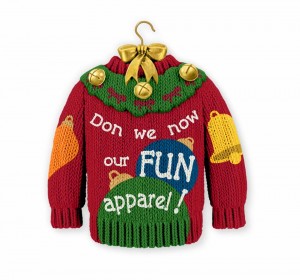When the curtain rises on the Winter Olympics tomorrow, two weeks of cheering and chanting in the languages of the 88 competing nations will begin. But these rallying cries that are so inherent to the theater and experience of sporting events aren’t confined to the fields, courts and stadiums of athletic competition: there’s another kind of cheer-leading going on in the musical and arts arenas of Japan.
At Music From Japan‘s upcoming festival in New York and Washington DC, The Ryukyuans — a band from Okinawa — will be singing traditional and contemporary folk songs from their region, and what you might hear during the performance is a type of musical cheer-leading embedded in the songs themselves. Translator, artist and teacher Sharon Nakazato explains how these rallying and rhythmic “hayashi kotoba” often color and vitalize the folk songs of Japan:
“Sa-a! Ei-i sa sa! A-a-i ya!” The lyrics to most Japanese folk songs are liberally spiced with so-called “hayashi kotoba”, spirited words and phrases that mostly have no literal meaning today but take a similar form to cheers at sports events. They might have been actual words in early times: a few are traceable to ancient Japanese forms of address or felicitous invocations, and one recent theory has their roots in ancient Hebrew! But however they came to be, “hayashi kotoba” fulfill several important roles in present-day Japanese folksongs: they create a convivial and exciting atmosphere; they cradle and bring focus to the narrative; they fill in syllables where needed for the lyrics’ rhythm; and, through their familiar associations with festivals and with bounty and blessings, they bring an immediate sense of exhilarated celebration to the occasion. In all parts of Japan, where song serves as a vital community unifier, the “hayashi kotoba” being sung by the audience along with the performers often brings heightened fervor to an event. Nowhere is this truer than in the Ryukyus.
At the Awa Odori, Japan’s largest dance festival, the dancers engage in call-and-response rallies with the cheering crowds, chanting and exchanging hayashi kotoba to whip up the rhythm and temperature of the event. You’ll hear cries of “Yattosa, yattosa!”, “Hayaccha yaccha!”, “Erai yaccha, erai yaccha!”, and “Yoi, yoi, yoi, yoi!” (This reminds me of the rallying cry among opera singers — “toi, toi, toi” — which is covered in an earlier Glossophilia post on the superstitions of wishing luck in the theatrical and performing arts worlds.)
Different kinds of hayashi kotoba are explored by Jane Alaszewska in Analysing East Asian Music, edited by Simon Mills. She explains that “Hayashi kotoba are speech-like phrases. These serve a variety of functions in performance. The most common phrase, kinayare kinayarei, invites the audience to get into the spirit of performance. Others such as tabatabata and kitakitakitei do not have a textual meaning but add an extra rhythmic dimension to performance. Some hayashi kotoba, particularly those in Semon Kudoki, are nonsense rhymes with rude double meanings. In Kumao-ji-deiko the o-se tends to imitate the hayashi kotoba rhythm. In this older style, only the performers call out hayashi kotoba but in shin-deiko these are also called out by the audience as encouragement to the performers.”













